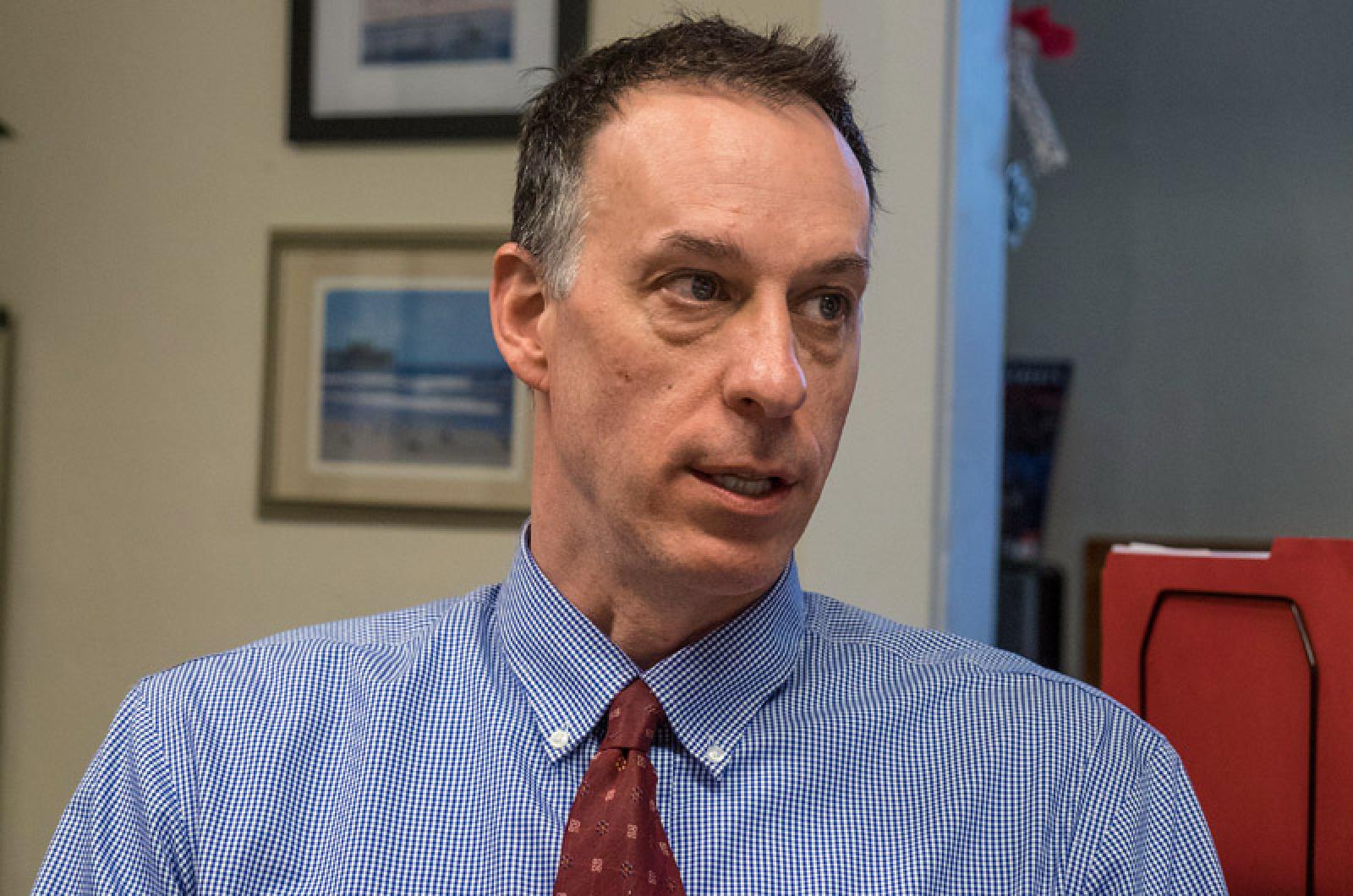Long before he became superintendent of schools on Martha’s Vineyard, Dr. Matthew D’Andrea authored a children’s book about a haunted school. It was never published, but the process gave him a lasting appreciation for writing that he has embraced throughout his career, from his experience as a fifth grade teacher, to principal, to superintendent.
Mr. D’Andrea said he has learned a lot through failure over the years, but he looks at his first year at the helm of the Island schools as a success.
“It’s been a great year, I love the job, it’s by far the most challenging job I’ve ever had,” he said.
Asked to give a list of highlights from his freshman year, he pointed to new administrators joining the district, keeping budgets tight and a writing initiative he has begun.
He sees the importance of writing as a holistic endeavour.
“When you write, you have to tap into so many different skills in your mind to put your writing together,” he said. Through the new program, he has worked with teachers in first through fourth grade on creating rubrics to score writing exercises. He said he believes continuity across the schools will help set a standard, further educate teachers and allow students to achieve at a higher level.
Mr. D’Andrea inherited a school system with strong academics, but in the midst of change. Almost immediately after being appointed he faced an unanticipated principal turnover at the high school and at the Oak Bluffs school.
High school principal Gil Traverso resigned after less than a year on the job. Former high school principal Margaret (Peg) Regan took over as interim as a search began for a new principal. In January, Sara Dingledy was selected to begin as principal next year. In Oak Bluffs, Jack Rizzo, appointed by Mr. D’Andrea in June, and abruptly resigned in December. Megan Farrell took over as interim and was later appointed permanently to the position.
“It’s more than you really want, that’s for sure,” Mr. D’Andrea said.
When it comes to making decisions about personnel there is no single formula to follow, he added. While trying to find candidates to fill positions for the long haul, Mr. D’Andrea said he has also been scrutinizing the administrative structure in the schools, reevaluating the necessity of positions as they become available. Next year the high school will have only one assistant principal and will be down a physical education position and a science position.
“When people leave, it’s an opportunity to look at different ways of doing things,” he said. “We certainly have done that at the high school and we’ll continue to do that at the central office and in all the schools. Can we be creative? Can we change assignments and perhaps hire fewer people?”
He said it is difficult for any community to accept major changes but the key is open communication.
“When you’re making a change it’s about communicating with people about the necessity for change,” he said. “What will be the benefits, how will we get the work done that needs to get done in this new way and how is it better. Why is it better. People are less likely to resist change if they understand why.”
But he is not just about finding places to cut back to keep the bottom line stable; he said he also wants to find opportunities for growth. Reducing positions frees up money in the budget to expand other programs, he said.
The high school budget had just a .4 per cent increase this year and the superintendent’s budget went up 2.35 per cent, numbers Mr. D’Andrea said he was proud of.
While working to chip away at unnecessary expenditures, Mr. D’Andrea also focused on teacher retention. When he interviewed for the superintendent’s position, Mr. D’Andrea said teacher retention was a priority. That priority was apparent in contract negotiations with teachers where increases for longevity, and administration control of professional days were on the bargaining table.
“Money helps of course, but it’s more than money,” he said. “We need teachers to feel supported, so that’s where things like professional development come into play.”
Programs like mentoring for new teachers have been successful in creating a healthy school climate, he said. He credited assistant superintendent Richard Smith with taking the lead on professional development.
Mr. D’Andrea has also looked into housing issues for school employees, and is considering the possibility of transitional housing for new hires. He is working with the new high school principal Ms. Dingledy to find housing for her family for next year.
The state of the facilities at the high school will be a focus of the summer months.
“Summer is always the opportunity to get work done on the buildings,” he said. “So we want to make sure we make good use of that time to continue making improvements in that building.”
Though most of his summer will be focused on the schools, Mr. D’Andrea plans to take some time in July to recharge.
“July is the best month as a school administrator to get away,” he said. “It’s the only month that very few people are thinking about school.”




Comments (1)
Comments
Comment policy »